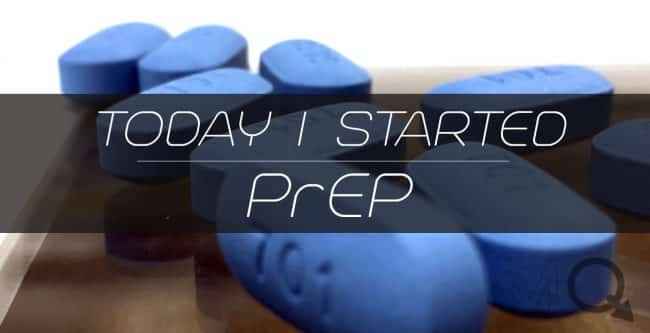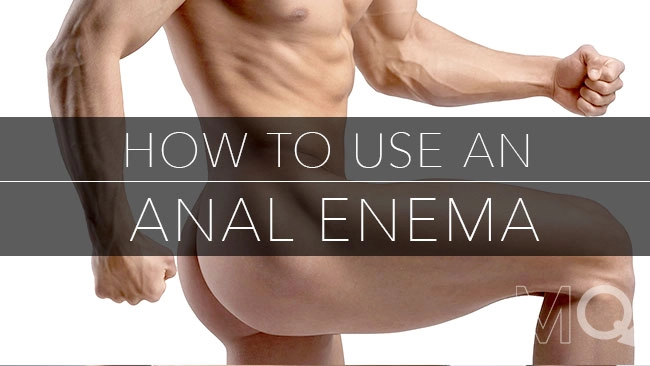Today I started PrEP to Prevent HIV

There is no cure for HIV. As the science stands today, once your get HIV, you have it for life. But today taking PrEP to Prevent HIV.
Although research has been steadily progressing, there is still no viable vaccine to prevent HIV, and as a gay man living in the modern world, HIV is and always will be a real statistical possibility.
But what if instead of waiting for a vaccine, you could take real action to protect yourself from HIV today?
What if, with just one pill a day you could receive protection from HIV infection at a rate better than any vaccine on trial today, and even rival that of the protection of using a condom?
That is why today I started PrEP to prevent HIV and protect myself for what I hope is a healthier, happier future.

What is PrEP?
PrEP, or Pre-Exposure Prophylaxis, is an anti-HIV medication for people who are HIV negative. It is a pill made from two common HIV medications, Tenofovir and Emtricitabine.
When taken daily, PrEP helps to build up these antiviral medicines in the body to protect against the HIV-1 virus (the most common type).
Think of it as a chemical Immunol resistance to HIV, preventing the virus from taking hold after you have been exposed, greatly reducing your chance of infection.
Who Should Use PrEP?
Originally, PrEP was prescribed only to very high risk individuals, such as intravenous drug users, sex workers, and couples who had one partner HIV+ and the other HIV-.
But now, as the drug is becoming better understood and more readily available, PrEP is being recommended more and more to any gay men who practice anal sex.
It is important to realize that using PrEP is a personal choice, and you should talk to a healthcare provider to see if it might work well in your situation.
Why I Started Using PrEP
The real fact is gay men are many times more likely to contract HIV than straight people, and even other members of the LGBTQ community (like lesbian women).
As I am in my late 20s, single, and sexually active, I found that starting PrEP was a good fit for me.
An Added Layer of Protection
PrEP, although not 100% effective at stopping HIV, has been found to be as much as 95% effective at preventing transmission, and with proper use (without missing doses) upwards of 99% effective.
This, paired with regular testing, condoms, and a growing community of people using PrEP, your chances of getting HIV can start to approach zero.
That is not to say that PrEP will make you completely immune to HIV (there are a number of cases of people on PrEP getting infected), but with daily adherence, and condom use, the possibility of contracting HIV becomes statistically very small.
Reduce Anxiety and Improve Your Mental Health
Personally, even with proper condom use, and even after knowing my partner’s status prior to having sex, there is still that small voice in the back of your head nagging you:
What if?
The anxiety and constant fear about sex is something that is ingrained into me (and many other people) being gay.
The worry after a sexual encounter, or from a routine HIV test can be so stress inducing that it has a significant effect on mental health and quality of life.
PrEP helps give that extra layer of reassurance and brings the risk level of transmission down significantly.
Nobody is Perfect
And as much as I hate to admit it, as someone who writes about gay sex and men’s sexual health, there have been cases were I was caught in the moment, and I didn’t use a condom.
It is stupid I know, but sometimes our judgment as humans is flawed.
PrEP, which if taken regularly, can help people like you and me stay happy and healthy, even in imperfect situations.
How Much Does PrEP cost?
The cost of PrEP can vary greatly depending on where you live in the world, and until recently, was prohibitively expensive for the average person.
Now, with government subsidies, support from non-profits, and insurance providers starting to hop on, the price of PrEP can be had for as little as $1 a day (what I pay now).
Even in expensive markets like the USA, many insurance providers and LGBTQ health centers have programs to make PrEP affordable, and with a little shopping around and research, you can likely find a plan that meets your budget.
What are the Side Effects?
PrEP is FDA approved, and its components, Tenofovir and Emtricitabine, have been in use for decades now.
As with any medication, side effects are mild, but do show up in a hand full of people. These include:
Nausea
Weight Loss
Trouble sleeping
All of which typically go away after the first month.
In rare cases, some people experience reduced kidney function, and has shown to revert back to normal levels after stopping the pill.
This is why doctors require blood work every 3 months to monitor kidney function and get a proper HIV screening regularly.
Sticking To A Routine
When first starting, you need to take the pill for a week for the medication to build up in your body and provide full protection. This means that even after the first few days on the pill, you can still be vulnerable to infection.
It is also important to take PrEP everyday, at the same time each day in order to fully protect yourself.
This is to ensure that your body has a consistent and steady dose of the drug.
Missing a pill is not detrimental, but it can take up to another week for your body to reach full protection. So missing a dose will increase your risk in the short-term.
That is why if you decide to start PrEP to prevent HIV, you need to be serious and consistent.
What’s Next?
I am still very new to PrEP, and plan to keep a journal of my experience using it. I will have my first check-up a month from now to see how my body is responding with some routine blood work for kidney function and a full STI check.
After this, I will need to go back every 3-4 months for a check up and prescription refill. This is something that I see as a good thing as it is an extra incentive to get regular testing and be more in-check with my personal health on a regular basis.
This is all still very new for me, and if you have any questions about my experience using PrEP, please send me a message ([email protected]) or comment below! I am happy to share my thoughts.
Cover image courtesy of Wikipedia Creative Commons
These are our picks for the best male masturbator. Have you tried any of these personally? Have any options that we left out? Let us know in the comments below and Follow us on YouTube, Twitter, and Facebook.












Responses